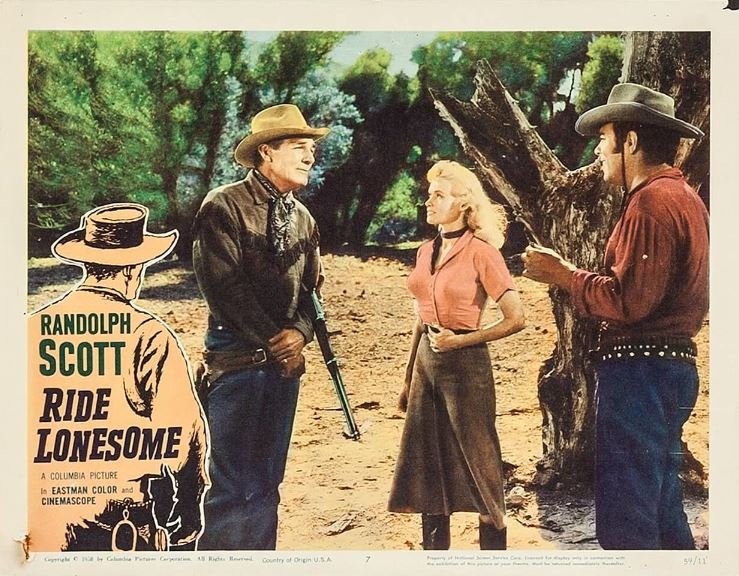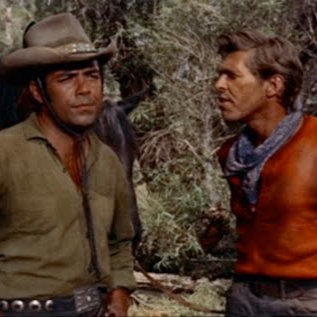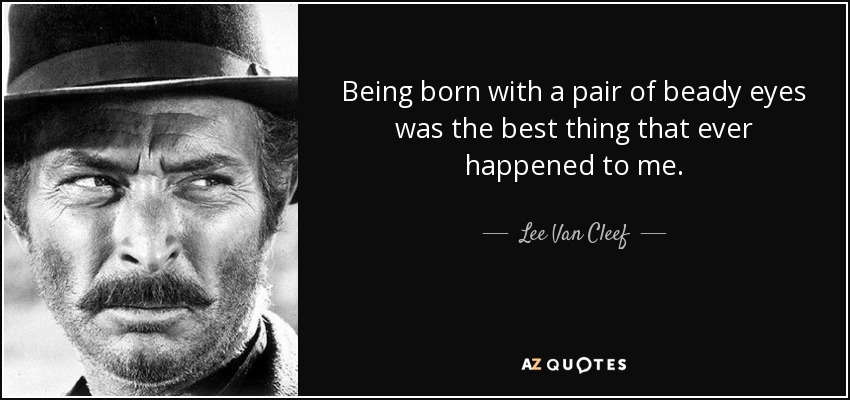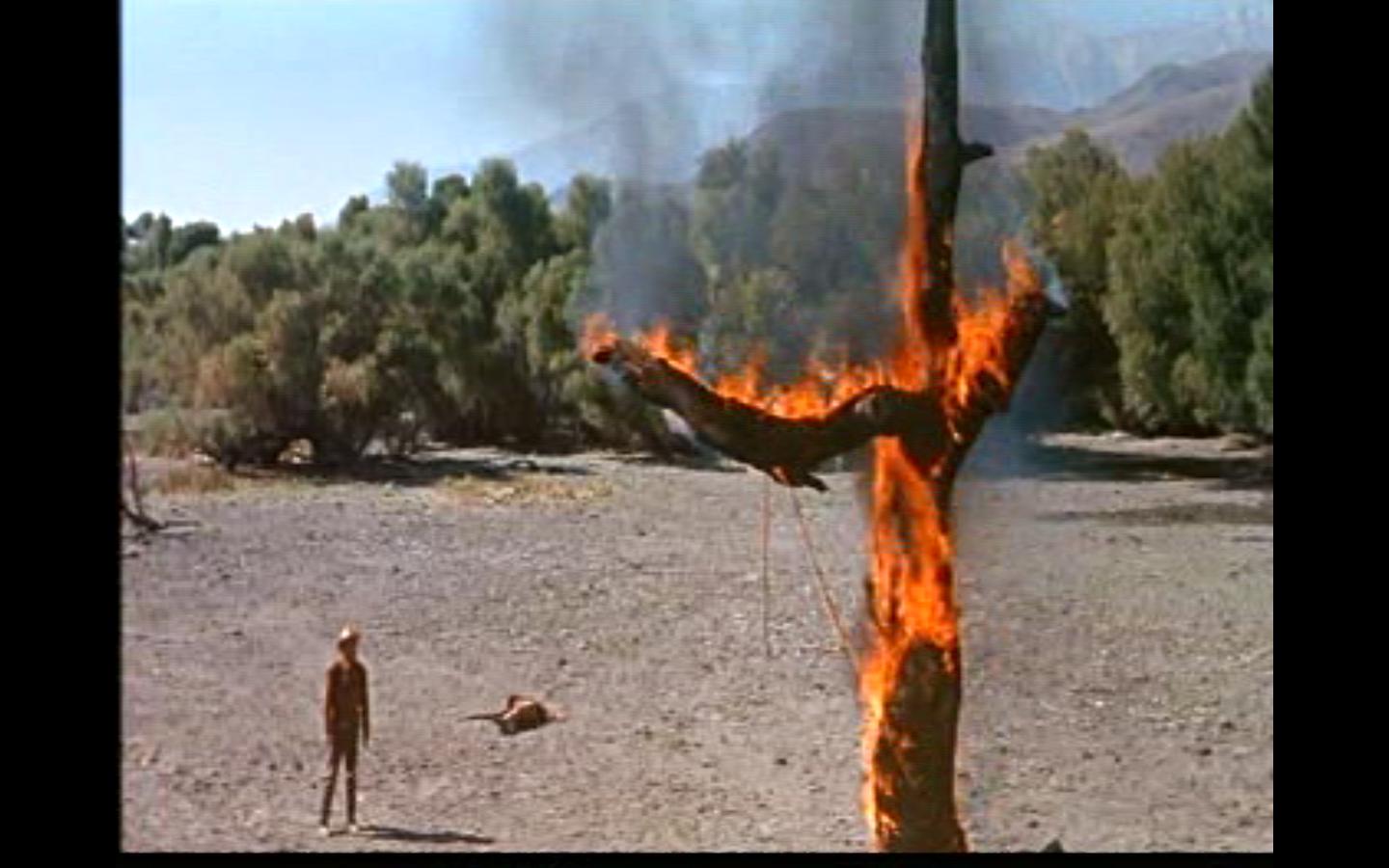This might be the best of the seven Ranown (Boetticher-Brown-Kennedy-Scott) movies. Why? The complexity of the plot and the surprise ending. Well, it surprised me and I thought I knew the formula backward. In fact, the end, the last scene is most fitting, though it left me wondering about a few things.
 A lobby poster.
A lobby poster.
It starts as the usual story. Scott is the cryptic loner who appears from the dust to aid the damsel, Karen Steele, in distress. He has in tow the murderous James Best, who, as always, makes one’s skin crawl with his servile, whining, inept, craven villainy. Moreover, Scott with Best and Steele falls into the company of a dubious pair, played superbly by Pernell Roberts and James Coburn, both outlaws themselves but not in Best’s class. The shadow of a future confrontation between this pair and Scott is obvious both to the viewer and to the parties. This was Coburn’s first film role.
 Roberts and Coburn confer.
Roberts and Coburn confer.
Best brags repeatedly that his big brother, the redoubtable Lee van Clef will be coming to his rescue and kill them all. I would certainly fear Lee VC, as he liked to be called.
 Lee Van Clef on his film career. Regrettably most directors asked no more of him than to squint those beady eyes.
Lee Van Clef on his film career. Regrettably most directors asked no more of him than to squint those beady eyes.
Before that confrontation they have to elude the raging Mescaleros, Apache Indians, who are raiding and have killed Steele’s husband. This is one occasion in the series when the indians are a mere plot device and given no explanation. This party of five had better make tracks to escape the indians and Van Clef.
Yet, at Scott’s insistence, they take the long way, travel in daylight, and cross open country rather than sticking to tree lines and ridges, moving at night. No effort is make to cover their many tracks. It dawns on Roberts that Scott wants to be caught, not by the Apaches, but by Lee van Clef, because…
Roberts and Coburn have a powerful incentive to take Best away from Scott and deliver him to the law, for then they will gain amnesty for their own earlier and lesser crimes, and so be free to live an ordinary life. Roberts is magnificent in wrestling with this temptation. Understated and taciturn per the screen play but endowing it with depth and delivering it with timing. Coburn as a naif is the perfect foil to his ruminations.
Scott never has doubts and so never ruminates: Best is a murder and he must be delivered. He is Scott’s prisoner and so he will deliver him. End of story.
Well not quite because there is a confrontation with Lee Van Clef, the one villain in this series who is not fleshed out but left a cypher, as Van Clef usually was.
Then comes the surprise.
Then comes the ending.
 The end.
The end.
‘It figures,’ says Roberts in another of his diamond lines tossed over his shoulder.
Skip to content
